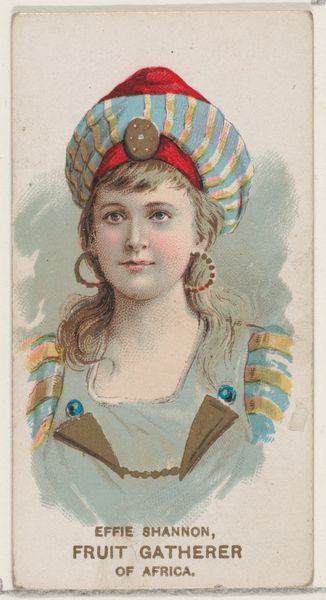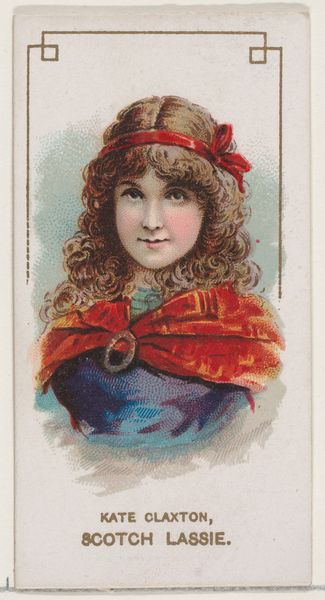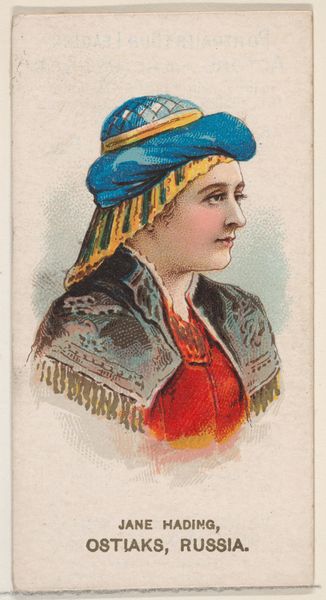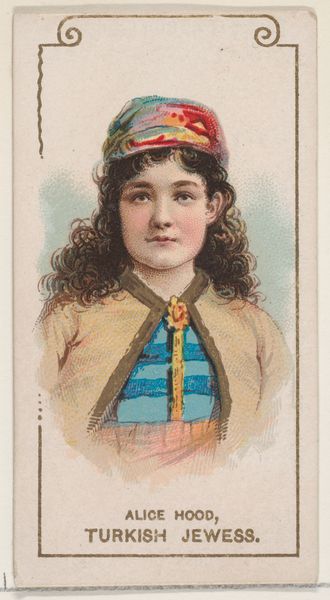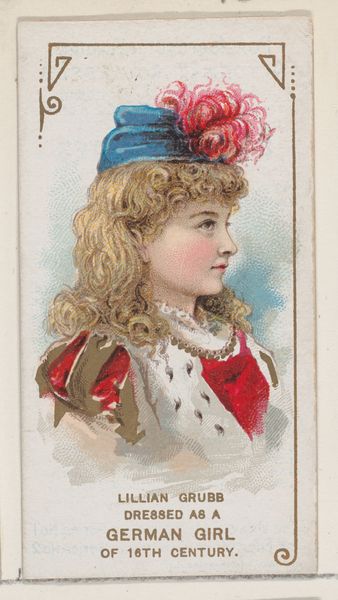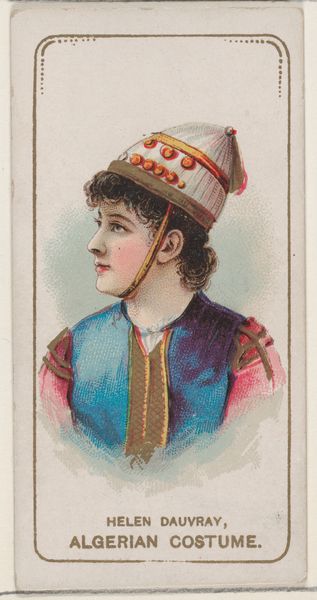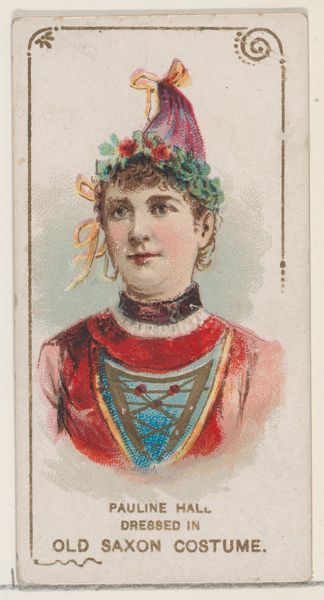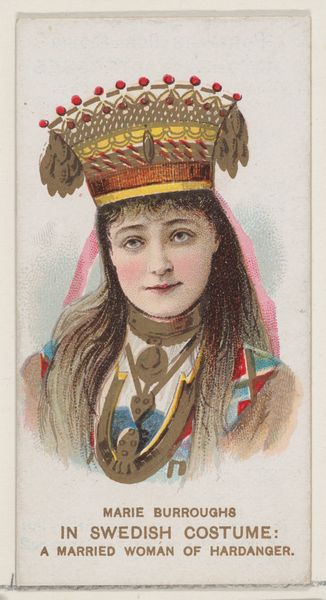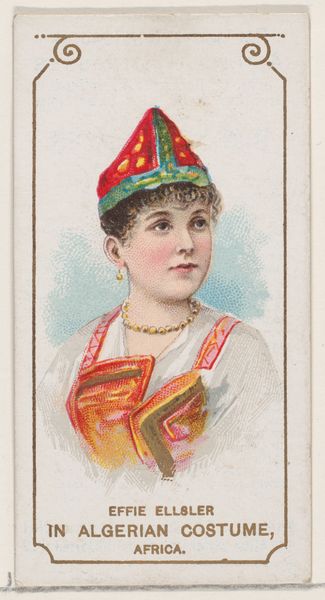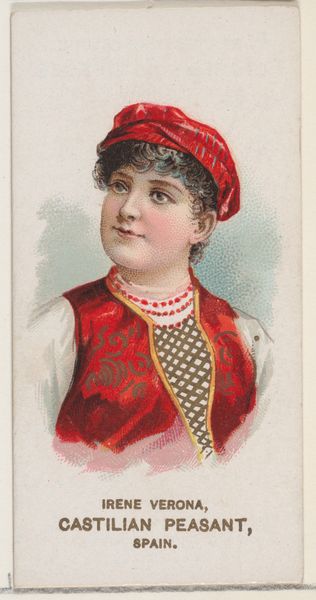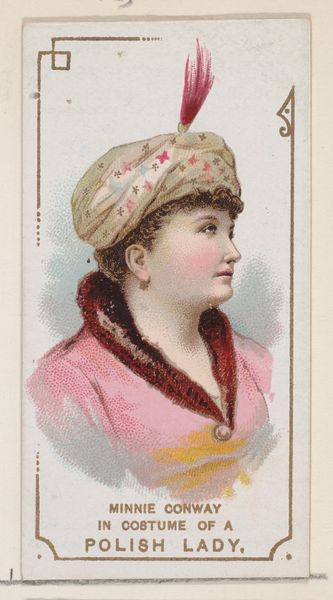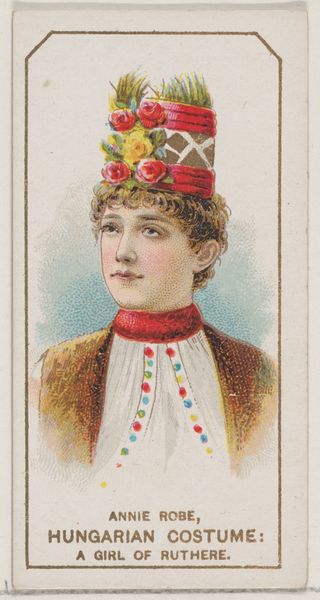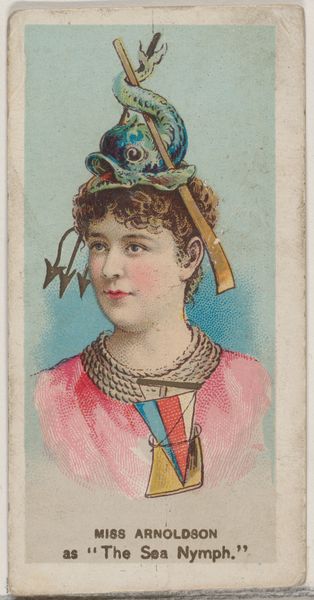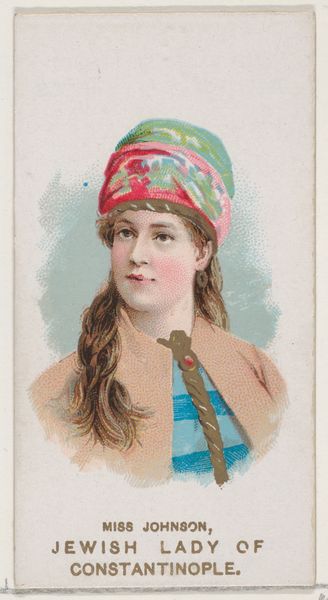
Estelle Clayton in Costume of European Turkey, from the set Actors and Actresses, Second Series (N71) for Duke brand cigarettes 1888 - 1890
0:00
0:00
drawing, coloured-pencil, print
#
portrait
#
drawing
#
coloured-pencil
# print
#
impressionism
#
coloured pencil
#
portrait drawing
#
portrait art
Dimensions: Sheet: 2 3/4 x 1 1/2 in. (7 x 3.8 cm)
Copyright: Public Domain
Curator: Here we have "Estelle Clayton in Costume of European Turkey," a print from the late 1880s by W. Duke, Sons & Co., part of their "Actors and Actresses" series. The primary media appear to be colored pencil on paper, offering a vivid portrait of the subject. Editor: My first impression is of theatricality—the bright colors and slightly flattened perspective feel stagey. The subject gazes directly out at the viewer, seemingly inviting a personal interaction within this representational setting. Curator: Indeed, and considering this image was used in cigarette cards, it functioned as both advertising and entertainment, demonstrating the intersection of leisure and commercial culture during the era of industrial capitalism. These cards provided small affordable luxuries, and a touch of supposed exoticism for consumers. Editor: Exactly. The actress's attire, described as being in the 'Costume of European Turkey', uses culturally-loaded symbolism. The fez, embroidery, and even the cross-like necklace likely spoke to the visual shorthands of the time. But I wonder if the symbolism presented actually aligned with the realities of life and culture of those from European Turkey. Curator: Well, considering the manufacturing contexts of such images, their use serves a more significant material role in the processes of capital. Were they not produced at massive scale by Duke’s tobacco factories they wouldn't come into existence at all. The image is, at its heart, another form of mass production – cheap representations of stage costumes intended for immediate disposal. Editor: Agreed. Looking at it as pure visual symbolism can somewhat conceal the capitalist imperatives involved in its production. Yet even fleeting representations tap into enduring visual and cultural understandings—her direct gaze is meant to disarm, invite a sort of…familiarity. Curator: Ultimately, it is an incredibly successful item. Through processes of image design and cheap printing practices Duke's enterprise was very fruitful thanks to selling illusions. The consumption and collection of these images directly fed its capitalist agenda. Editor: I've definitely gained a sharper view of this object. There is a continuous visual language at play—a carefully constructed image for a targeted, buying audience, even under layers of capitalist materialism. Curator: Precisely. Hopefully, visitors have also appreciated its many facets in a different perspective now.
Comments
No comments
Be the first to comment and join the conversation on the ultimate creative platform.
